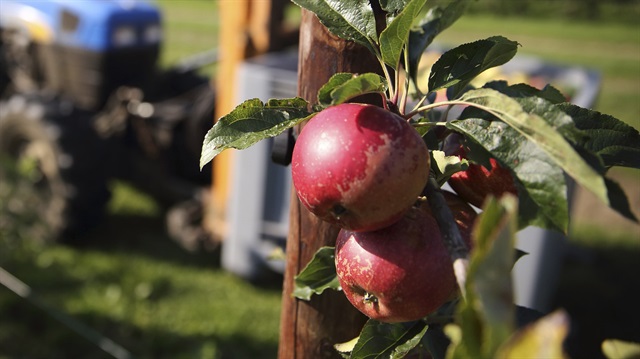
The world's most famous apple tree is still standing strong -- in the middle of an orchard, adjacent to a historic manor -- in the small market town of Grantham in Midlands, England.
The tree first found fame when one of its ripe apples fell before the very eyes of great British scientist Sir Isaac Newton when he was working on his ahead-of-time experiments.
Newton would later reveal that this tiny fruit had laid the foundation stone of his "Theory of Gravity."
This rare "Flower of Kent" tree bears a sub-acid cooking apple. It was declared in 2002 by Queen Elizabeth II as one of the 50 trees under protection and part of English heritage.
The orchard hosting it for the past 400 years saw many visitors even during Newton’s time. According to records, it re-grew after a storm blew it down in 1820 and supporting logs are still there to keep its shape.
The tree is visited by thousands of Newton admirers every year and it seems like it has not lost much from its long-lasting fame.
The Woolsthorpe Manor was converted into a museum, where visitors can see Newton's study, the room where he was born in 1642, and its parlor.
Some of the earliest copies of Newton’s books, including Philosophiae Naturalis Principia Mathematica (1678) and Opticks (1704), are exhibited in the museum.
Newton was born at Woolsthorpe-by-Colsterworth in Woolsthorpe Manor on Dec. 25, 1642. He was looked after by his grandparents after his mother left for another marriage. He completed his early education at the King's School Grantham.
After gaining a degree at Cambridge Trinity College, he returned home to escape the Great Plague in 1666. He made his most important discoveries at the manor for the next two years.
Newton is among the most influential scientists in the world. His well known scientific works include his theories: The Three Laws of Motion and Universal Gravitation.
Through his studies on light and prism, he proved that white light was made up of seven colors. He also invented the first mirrored telescope.
Newton was the first scientist to be knighted in 1705 by Queen Anne. He served as Warden and Master of the Royal Mint and became the president of the Royal Society in 1703. Newton also served as an MP for two brief terms in the British parliament.
He died on March 31, 1727 and was buried in Westminster Abbey in London.
Newton’s scientific work advanced the fields of physics, astronomy, mathematics and the natural sciences for 300 years following his death.
- Grantham
Grantham is a market town located between Notthingham and Peterborough cities in Midlands, England.
Numerous products from regional farms are sold in the town.
It is also associated with Britain’s first female prime minister Margaret Thatcher who was born in Grantham on Oct. 13, 1925.
Thatcher, who is also known as the Iron Lady because of her tight economy policies, served as the Conservative prime minister from 1979 to 1990.
Thatcher died on Apr. 8, 2017 in London.














